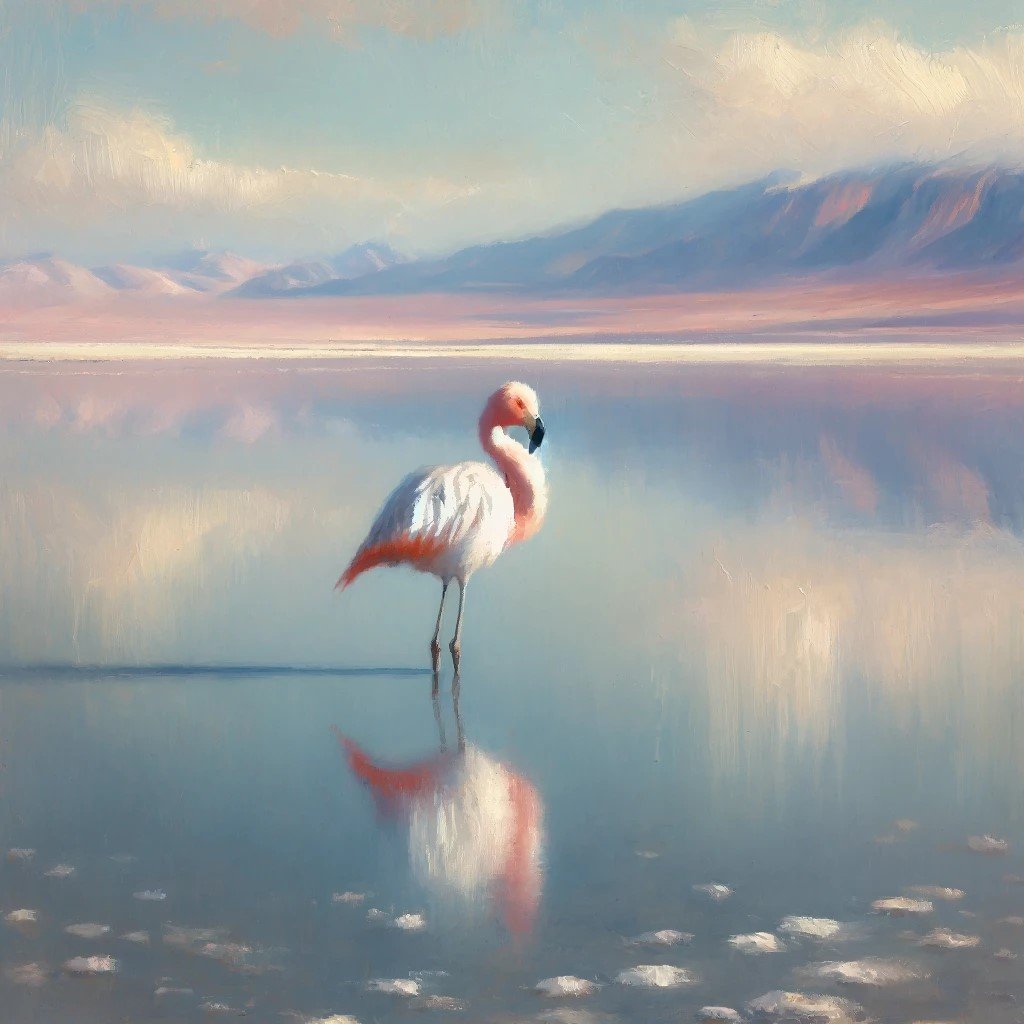Soda lakes shimmer
below the blazing sun,
their mirrored lens
a shifting imitation
of countless
unseen threads.
These waters cradle life,
crimson streaks
whose feathers burn
against the blue
and rising edge.
Cradles shrinking
beneath the load
of this grasping
swelling sky –
held aloft by loss,
yet anchored
to these shrinking
sanctuaries
within the bulging veins
of a desperate,
ever tearful
earth.
This poem is inspired by recent research, which has found that Africa’s flamingos are threatened by rising lake levels.
Soda lakes are among the most vibrant and productive water bodies on the planet. These lakes, often characterised by their alkaline and saline conditions, support diverse and specialised life forms. The unique chemistry of these lakes fosters the growth of specific types of phytoplankton, tiny plant-like organisms that form the base of the food web. This in turn supports a variety of wildlife, including unique invertebrates, fish found nowhere else in the world, and the visually striking Lesser Flamingos. Particularly in East Africa, these lakes are crucial, providing essential feeding grounds for over three-quarters of the world’s Lesser Flamingo population.
By using satellite imagery and direct observations of flamingo populations, scientists have studied changes in the lakes’ productivity and overall health across several decades. They discovered that the availability of phytoplankton, a key food source for flamingos, has been decreasing, notably from 1999 to 2022. This decline is largely due to significant increases in water levels, possibly linked to climate change, which has led to a reduction in the quality and availability of habitat for many species. Particularly affected areas include parts of equatorial Kenya and northern Tanzania. These findings underscore the growing threat to the biodiversity of soda lakes in East Africa, stressing the need for better lake management and monitoring practices to safeguard these unique ecological havens.
Discover more from The Poetry of Science
Subscribe to get the latest posts sent to your email.
